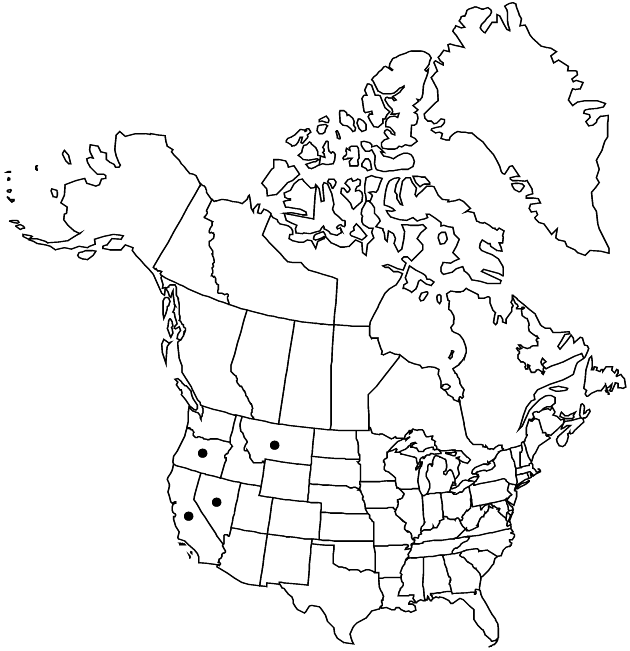Difference between revisions of "Crepis modocensis subsp. subacaulis"
Publ. Carnegie Inst. Wash. 504: 148. 1938.
Basionym: Crepis occidentalis var. subacaulis Kellogg
FNA>Volume Importer |
FNA>Volume Importer |
||
| Line 49: | Line 49: | ||
|publication year=1938 | |publication year=1938 | ||
|special status= | |special status= | ||
| − | |source xml=https://jpend@bitbucket.org/aafc-mbb/fna-data-curation.git/src/ | + | |source xml=https://jpend@bitbucket.org/aafc-mbb/fna-data-curation.git/src/8f726806613d60c220dc4493de13607dd3150896/coarse_grained_fna_xml/V19-20-21/V19_292.xml |
|tribe=Asteraceae tribe Cichorieae | |tribe=Asteraceae tribe Cichorieae | ||
|genus=Crepis | |genus=Crepis | ||
Revision as of 15:10, 18 September 2019
Plants 6–30 cm; setae yellowish, usually ± straight, sometimes bent (ca. 1 mm). Stems (stout, branched proximally) setose (setae yellowish). Leaves: petioles setose; blades 10–15 × 3–4 cm (margins pinnately lobed, lobes dentate). Heads 1–6. Involucres 13–21 mm. Phyllaries sparsely setose (setae blackish) or glabrous. Cypselae blackish to brownish or dark reddish, slightly narrowed, not beaked (ribs strong); pappi 9–13 mm.
Phenology: Flowering May–Jul.
Habitat: Wet meadows, steep slopes
Elevation: 1800–2100 m
Distribution

Calif., Mont., Nev., Oreg.
Discussion
Selected References
None.
Lower Taxa
None.